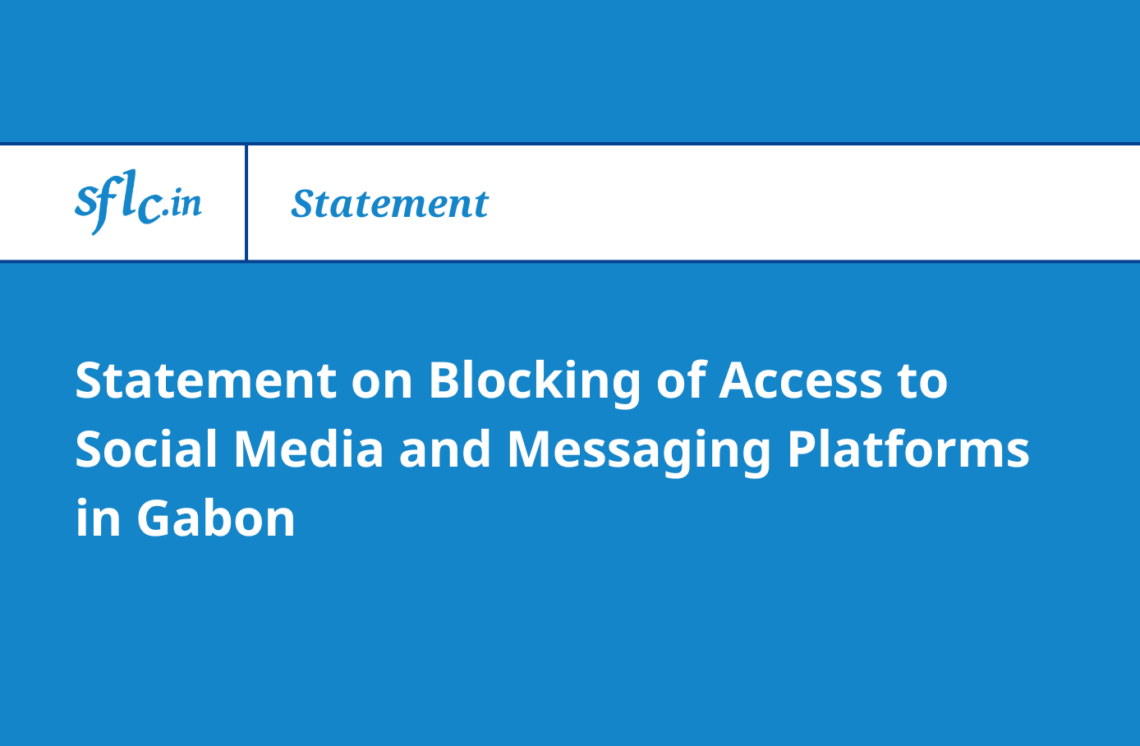CJEU rules that search engines cannot be asked to de-list information globally under EU right to be forgotten requests
On September 24, 2019, Europe’s top court, the Court of Justice of the European Union (CJEU) held that search engines who’ve been requested for de-referencing links under the right to be forgotten (after an order from a supervisory or judicial authority of a member state of the EU) are not obliged to perform the de-referencing from all (global) versions of its service. SFLC.in had intervened in this matter along with other civil society organisations from around the world.
The question was referred to the CJEU by the Conseil d’Etat in France, after Google refused to de-reference information from all its versions (jurisdictions beyond the EU) as ordered by the French data protection authority, the CNIL (Commission Nationale de l’Informatique et des Libertés). The right to be forgotten (RTBF) is a privacy right enjoyed by the citizens of EU member states previously under the personal data protection directive of the EU (Directive 95/46/EC), which has been now replaced by the the General Data Protection Regulation [Regulation (EU) 2016/679] (GDPR). Since this reference was made to the CJEU before the enforcement of GDPR, the court examined the law taking into account both – the personal data protection directive and the GDPR.
The CJEU in its reasoning stated that numerous countries around the world either do not recognize the RTBF (including the right to de-referencing) or have different approaches to it. Referring to GDPR, the court stated that the protection of personal data was not an absolute right and is required to be balanced with competing rights such as the freedom of information of Internet users, as per the principle of proportionality, within the EU, such a balance has not been struck for de-referencing of information which will apply outside the EU. The court also opined that such a balance between these competing rights is likely to vary significantly around the world.
The CJEU clarified that EU law requires search engine operators to carry out de-referencing on all versions of its service which are accessible from EU member states. The court clarified that search engines are also required to implement measures to effectively prevent or seriously discourage Internet users form accessing links on the subject matter of de-referencing from within the EU, but using non-EU versions of the website.
The top court also held that global de-referencing in matters of RTBF are not specifically prohibited under EU law. Local data protection authorities of EU member states have the power to ascertain whether de-referencing is required globally or not after balancing data subject’s right to privacy on one hand and the right to freedom of information on the other hand.
This ruling from the CJEU is a great victory for the freedom of speech on the Internet for all users. If nation states start requesting search engines like Google to de-list links from their global versions, the Internet will practically become the bastion for countries with the most regressive laws on free speech online. The RTBF has been often criticised for enabling bad actors to take down listings from popular search engines, which negatively impacts freedom of information and speech on the Internet, but the CJEU’s recognition of the principle of proportionality and maintaining a balance between the competing rights of privacy and free information in cases of RTBF, puts regulation on the right path.
In a similar case in Canada (Google Inc. v. Equustek Solutions Inc., 2017), where Google was asked to de-index listings for protection of trade secret rights of a subject from its global versions and it refused to do so, the Supreme Court of Canada ruled against Google and ordered a global take down requiring the search engine to de-index the relevant listings from its global versions. This judgment of the Canadian court was heavily criticised by civil society organisations and Internet advocates for violating the free speech and information rights of global Internet users. SFLC.in had also intervened in the Google v. Equustek matter in Canada.
For a detailed analysis of the RTBF and key cases on it, kindly refer to our comprehensive report on intermediary liability, here – Intermediary Liability 2.0 – A Shifting Paradigm.
The provisional text of the judgment as downloaded from the official website of the CJEU, can be accessed, here:




